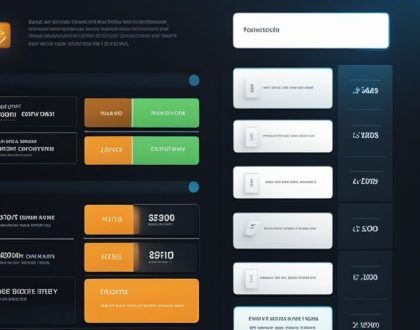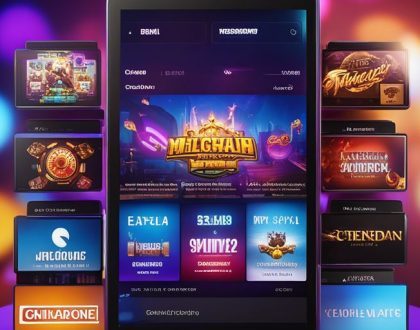iGaming Payments – Past, Present, and Future

Most industries have been drastically transformed by technological advancements, and the iGaming sector is no exception. In this informative piece, we examine into the evolution of iGaming payments, exploring the significant developments that have shaped its past, the current state of affairs, and the exciting possibilities that lie ahead.
A Historical Perspective on iGaming Payments
While iGaming has evolved rapidly over the past few decades, its journey through payment methods has been equally intriguing. From humble beginnings to the complex ecosystem it is today, the history of iGaming payments is a testament to the industry’s adaptability and innovation.
Early Days of Online Gaming and Payment Methods
To understand the present and future of iGaming payments, we must first look back at its early days. In the 1990s, the emergence of online casinos and betting sites paved the way for a new era in the gambling industry. Payment methods were initially limited, with most players relying on credit cards for deposits and withdrawals. However, issues such as high transaction fees and security concerns soon prompted the need for more diverse payment options.
Evolution of Security Measures in iGaming Transactions
The evolution of security measures in iGaming transactions has been paramount to the industry’s growth and sustainability. As online gambling gained popularity, so did concerns about the safety of financial transactions. In response, iGaming operators implemented various security protocols such as SSL encryption, two-factor authentication, and strict KYC (Know Your Customer) procedures to safeguard players’ funds and personal information.
iGaming continues to invest heavily in security technologies to stay ahead of cyber threats and ensure a safe playing environment for all users. While the landscape of online payments may change, the commitment to security remains a top priority for iGaming operators worldwide.
The Current State of iGaming Payments
Overview of Payment Options Available Today
Some of the most popular payment options available in iGaming today include credit/debit cards, e-wallets, bank transfers, and cryptocurrencies. These options offer players a variety of choices when it comes to depositing and withdrawing funds from online casinos and betting sites.
The Role of Payment Processors and Financial Institutions
Current iGaming industry heavily relies on payment processors and financial institutions to facilitate transactions between players and online operators. These entities play a crucial role in ensuring smooth and secure payment processing, helping to mitigate risks associated with fraud and money laundering.
iGaming operators often partner with payment processors and financial institutions to offer a wide range of payment methods to players and comply with stringent regulatory requirements.
Regulatory Impact on iGaming Payments
Jurisdictional Differences and Challenges
After the explosion of the iGaming industry, various jurisdictions have imposed regulations that impact the payment processes. Each country has its own set of rules and guidelines regarding online gambling, leading to a complex landscape for iGaming operators to navigate. Jurisdictional differences in licensing requirements, taxation, and payment processing have created challenges for payment service providers, causing delays and disruptions in transactions.
Anti-Money Laundering and Compliance Measures
Compliance with anti-money laundering (AML) regulations and other financial laws is a critical aspect of iGaming payments. iGaming operators must implement stringent AML procedures to prevent illegal activities such as money laundering and fraud. This includes customer due diligence, transaction monitoring, and reporting suspicious activities to regulatory authorities. Non-compliance can result in hefty fines, loss of license, and damage to the reputation of the operator.
Impact: The increasing regulatory scrutiny on iGaming payments has both positive and challenging implications. Strict AML measures are necessary to protect the integrity of the industry and ensure a safe environment for players. However, the complexity of navigating through various regulations and the burden of compliance can pose significant challenges for iGaming operators.
Technological Innovations in iGaming Payments
Enhancement of User Experience Through Technology
One of the key areas where technological innovations have significantly impacted iGaming payments is in enhancing user experience. The integration of advanced payment gateways, biometric authentication, and AI-driven fraud detection systems has streamlined the payment process for players. These technologies not only ensure faster and more secure transactions but also provide a more seamless gaming experience.
Adoption of Cryptocurrency and Blockchain
Any discussion on technological innovations in iGaming payments would be incomplete without mentioning the growing adoption of cryptocurrency and blockchain technology. These decentralized systems offer enhanced security, anonymity, and faster transactions, making them increasingly popular among players and operators alike. With the use of cryptocurrencies such as Bitcoin and Ethereum, players can enjoy instantaneous transactions and lower fees compared to traditional payment methods.
For instance, blockchain technology ensures that all transactions are securely recorded and immutable, reducing the risk of fraud and ensuring transparency in the iGaming industry. The adoption of cryptocurrency and blockchain is set to revolutionize the way payments are processed in the iGaming sector, offering benefits for both operators and players.
Player Trust and Payment Security
Building Trust with Secure Payment Protocols
Trust is a fundamental aspect of the iGaming industry, particularly when it comes to players entrusting their payment information to online platforms. Secure payment protocols play a vital role in building this trust by ensuring that players can make transactions safely and securely. With the use of SSL encryption and PCI DSS compliance, iGaming operators can offer players peace of mind that their sensitive financial data is protected from malicious intent.
Impact of Data Breaches and Fraud Prevention Strategies
The impact of data breaches and fraud in the iGaming industry cannot be understated. Players need to feel confident that their personal and financial information is secure when engaging in online gaming activities. Fraud prevention strategies such as biometric authentication and tokenization are necessary in mitigating risks and safeguarding player data from falling into the wrong hands.
Trust in the iGaming industry is directly tied to the effectiveness of fraud prevention measures. Operators that prioritize security and invest in robust fraud prevention strategies not only protect their players but also bolster their reputation as a trusted and reliable platform for online gaming.
The Future Landscape of iGaming Payments
Predicted Trends in Payment Solutions
Unlike the traditional payment methods that have dominated the iGaming industry in the past, we are witnessing a shift towards more innovative and efficient payment solutions. The future of iGaming payments is set to be revolutionized by the integration of cryptocurrency payments, e-wallets, and instant banking options. These solutions offer faster transaction times, increased security, and enhanced privacy for players, making them more attractive and convenient for the modern online gambler.
Potential Regulatory Changes and Their Impacts
On the regulatory front, the iGaming industry is poised for significant changes that could reshape the way payments are processed. With an increasing focus on consumer protection and anti-money laundering measures, regulators are likely to implement stricter regulations on iGaming payments. This could mean more robust verification processes, limitations on certain payment methods, and potentially higher compliance costs for operators.
To stay ahead in this evolving landscape, iGaming operators need to adapt to these potential regulatory changes by investing in compliance measures, fraud prevention technologies, and customer verification systems. By prioritizing these areas, operators can ensure they remain in good standing with regulators and provide a secure and trustworthy gaming experience for their players.
Summing up
iGaming payments have evolved significantly over the years, from the early days of credit card transactions to the diverse range of payment options available today. The industry has adapted to changing regulations and consumer preferences, leading to improved security, convenience, and efficiency in processing transactions. As we look to the future, iGaming payments will continue to innovate, with emerging technologies like blockchain and biometrics poised to revolutionize the way players deposit and withdraw funds.
FAQs
What are some early payment methods used in iGaming?
In the early days of iGaming, players primarily used credit cards for transactions due to limited alternatives and security concerns.
How has technology impacted iGaming payments?
Technological advancements like SSL encryption and biometric authentication have significantly enhanced security and user experience in iGaming payments.
What role do payment processors play in iGaming transactions?
Payment processors facilitate smooth transactions between players and iGaming operators, ensuring compliance with regulatory standards and reducing fraud risks.
What are the current trends in iGaming payment solutions?
Today, iGaming offers diverse payment options including e-wallets, cryptocurrencies, and instant banking, catering to varied player preferences for speed and security.
How is regulatory scrutiny affecting iGaming payments?
Regulatory changes are shaping iGaming payments with stricter compliance requirements aimed at enhancing security and transparency in financial transactions.
Recommended Posts

Payment Integration – A Technical Overview
July 3, 2024

Growth of Mobile Gaming in Big Brands
July 3, 2024

Spotlight on Malta’s iGaming Titans
July 2, 2024




